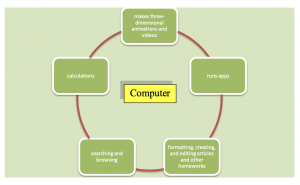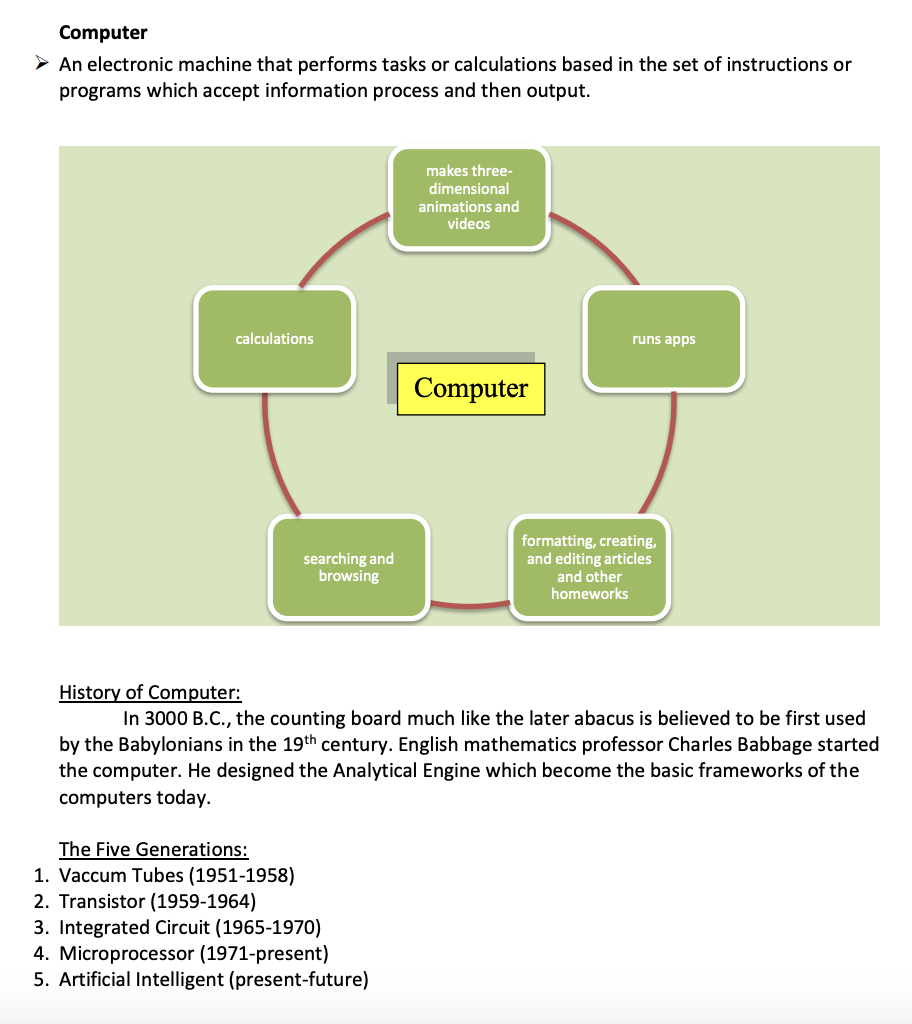Evolution of Computers from Abacus to AI
Summary:
A computer is an electronic machine that processes tasks or calculations based on instructions or programs, taking in information and producing output. The history of computers dates back to 3000 B.C., with the Babylonians using counting boards. Charles Babbage designed the Analytical Engine, laying the foundation for modern computers. Computers have evolved through five generations, from vacuum tubes to artificial intelligence.
The computer’s evolution includes milestones such as the Pascaline, Analytical Engine, and Electronic Numerical Integrator And Computer (ENIAC). It progressed through the invention of the transistor, integrated circuits, microprocessors, and artificial intelligence. Notable advancements in computer technology include the first personal computer, the introduction of operating systems, and the development of social media platforms like Facebook, Twitter, and YouTube.
Information Technology (IT) is the application of computers and telecommunications to store, retrieve, transmit, and manipulate data. IT has evolved through the ages, from pre-mechanical methods like abacuses to modern electronic computers with artificial intelligence capabilities.
The World Wide Web, created by Tim-Berners Lee, allows users to access information through hypertext links. The Web has evolved from static Web 1.0 pages to interactive Web 2.0 platforms where users can engage and create content. The Semantic Web, or Web 3.0, aims to provide users with personalized and contextually relevant information.
Online platforms have emerged to support ICT development, including presentation tools, cloud computing for remote data storage, file management platforms, mapping tools, and various social media platforms. Social media sites allow users to connect, share information, and engage with others on a global scale.
Excerpt:
Evolution of Computers from Abacus to AI
Computer
- An electronic machine that performs tasks or calculations based on a set of instructions or programs which accept information process and then output.

Evolution of Computers from Abacus to AI
History of Computer:
In 3000 B.C., the counting board, much like the later abacus, is believed to be first used by the Babylonians in the 19th century. English mathematics professor Charles Babbage started the computer. He designed the Analytical Engine, which became the basic framework of computers today.


Reviews